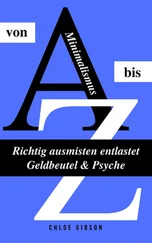And once he began dating Sue, I knew I had to leave. Sue and Maxine, two tiger-eyed dames from the Bat Cave; once they appeared on the scene, the curtain fell. The cigaretted sisters we called them, or the Sisters of Mercy. They too had remained at the end of this corridor behind many shut doors, but now that I thought back on those days the image of them came quivering back in a waft of sulphur. Lucian had Sue, and his friend Perce got Maxine, at least on nights when Maxine felt like throwing someone a bone. They were two dark-haired beauties, candle white and always lit, one with her Dunhills and the other her Silk Cuts, and once they walked through the door I knew I could never compete.
So with Sue came the end of my life under the same roof as two ferrets, a Victorian pickpocket and a Camden Goth, and though Lucian could never understand why, he handled my decision to leave in an elegant way and even helped carry my two suitcases, books and hatbox down to the minicab waiting outside.
After witnessing the tiny flashes of desire between my former flatmate and my current one, new territory being tentatively marked out before my eyes, my only impulse — and a strong one — was to go and see Daniel. I rang and he was in, had finished writing for the day, and open to company. Jane and I said goodbye at the station. I watched her walk off clutching the plastic bag with her corset, mission accomplished though it seemed she might’ve just found the next one.
On the bus from Camden to Hackney, checking every now and then that the scarab was still affixed to my lapel, I thought back on the scene. For the first time in Jane’s presence I’d felt like a shadow. At home she would be the one more likely to climb the walls or fall across a page, but there at the market it was I who lost substance. Even after all those years of not seeing Lucian he had, within minutes, sent me back to that insecure place, though at least I was no longer his shadow, maybe just a stray one, and solid enough anyway to carry a pin.
Daniel rented his flat in Hackney from two brothers who’d converted an old slipper factory into twenty spaces, either as work units or as residential flats they let out to artists, DJs and graphic designers. Daniel didn’t fall into any of these categories but with the help of a friend he was able to secure a good deal and had been living there for nearly six years. As luck would have it, the one and only vestige from the building’s previous incarnation happened to be nailed to the floor of his living room: a peculiar mediumsized contraption with a wooden foot on which workers used to stretch or model slippers. The foot looked like that of a small adult, its heel attached to a pedestal on the machine and its smooth, toeless summit pointing towards the ceiling.
When I’d first gone over, I’d expected to stumble into an overgrowth of books, paper and objects, the sort of disorder within which I imagined every writer cocooned himself in order to write, yet when I arrived I was surprised to find austerity and restraint. Or maybe it was just laziness. No pictures on the walls, no objects on the shelves, no curtains on the windows apart from a large piece of cardboard he’d prop up at night. The furniture was sparse and mismatched, the only items with personality a long busy bookcase and a sagging maroon armchair where I’d deposit my things since the hooks by the door were taken up with dozens of scarves and coats he’d found at Oxfam.
Daniel buzzed me into the building and was waiting in the doorway of his flat when I reached the top of the stairs. He was in what he called his writing clothes, baggy cotton trousers and a blue T-shirt, his hair unevenly swept to one side, dark fronds falling on to his forehead. The familiar odour of coffee and pencil shavings hung in the air. After I’d tapped the slipper machine’s wooden foot in a tiny concession to superstition and settled into the seat I always took by the window, he disappeared into the kitchen and came back out with tea and wine.
‘How’s your day been?’ he asked, laying out mugs, pot and bottle.
‘Just went to Camden with Jane and ran into Lucian.’
‘Who?’
‘Lucian. You remember, my old flatmate, the handsome Goth.’
‘Oh yeah… And?’
‘I guess it was nice to see him again. He’s kind of unchanged. I think he really struck a chord in Jane.’
Daniel smiled. ‘That makes sense.’ He returned to the kitchen for wine glasses.
As I helped myself to the tea I realised I’d hardly eaten since breakfast. ‘You wouldn’t have anything small to eat, would you?’
‘Not really. I need to do a big shop… But we can order in later.’
First, however, I knew I had to indulge the host, the rule whenever I went over. Before we spoke about our day or our week, before we ate or watched a film, Daniel would reach for a stack of letters, usually the most recent, and with the customary fervour read a few out to me. The only thing he would offer beforehand were liquids. And cigarettes, depending on whether I happened to be smoking at the time.
Along with his poems he had another collection — an ever growing, almost compulsive, correspondence with poets from around the world. One poet would introduce him to another, that one to another, and so on. Never by Internet, always by post: otherwise, the notion of country would mean so little. He had met only a handful of them, and preferred it that way. There were regular letters from a poet in Zagreb, from a Romanian translator in Stockholm named Pierre Zekeli, from someone in Rio de Janeiro. He knew little about their personal lives; many of these individuals, mostly men, were immensely shy, especially the Scandinavians. They would write frequently but get frantic should anyone but mention they were passing through their city. Then suddenly they were nowhere to be found, had to leave the country on urgent business, etc. But that suited him fine — with the few individuals he did meet, the correspondence suffered afterwards and in some cases even shrivelled up.
Inevitably, Daniel liked some of their work more than others’. But one should always be generous with one’s colleagues, he would say, and he’d try to find something worthy in everything. The letters themselves were sometimes much more interesting than the poems. There was the German from Baden-Württemberg, for instance, who after learning that Daniel lived in a former slipper factory wrote to him about a fox on the wooded estate of a count who, over the course of two years, had amassed 300 pairs of shoes and slippers, predominantly leather slippers, since foxes, he explained, had a taste for leather and liked to sharpen their teeth on slippers in particular. This German poet had put out his own slippers one night when he went to stay at a nearby chalet, half hoping to be able to write himself into the story and, sure enough, in the morning his slippers had vanished.
Then there was the Austrian poet who suffered from lung disease, an ailment inseparable from his run-on sentences and never-ending paragraphs, as if each phrase were his last, a certain breathlessness in every letter, you could almost feel his lungs exerting themselves, Daniel said, trying to keep up with the velocity of his thought without losing momentum, and each time he received a missive from him he wondered whether it would be his last. Yet the letters kept coming.
The definition of the poet’s solitude, Daniel would quote every now and then, is a circus number not announced in the programme.
Yet in my eyes he wasn’t that alone.
Apart from the slipper machine, the flat’s most intriguing item was an enormous nautilus shell so heavy I was never able to shift it a centimetre, and it was into the immense open ear of this shell, whose thick outer lip gave it the simultaneous appearance of a mouth, that Daniel read out his latest letters that evening. I poured myself some wine and tried to find a comfortable position in the chair, suddenly aware of its unyielding wood.
Читать дальше












